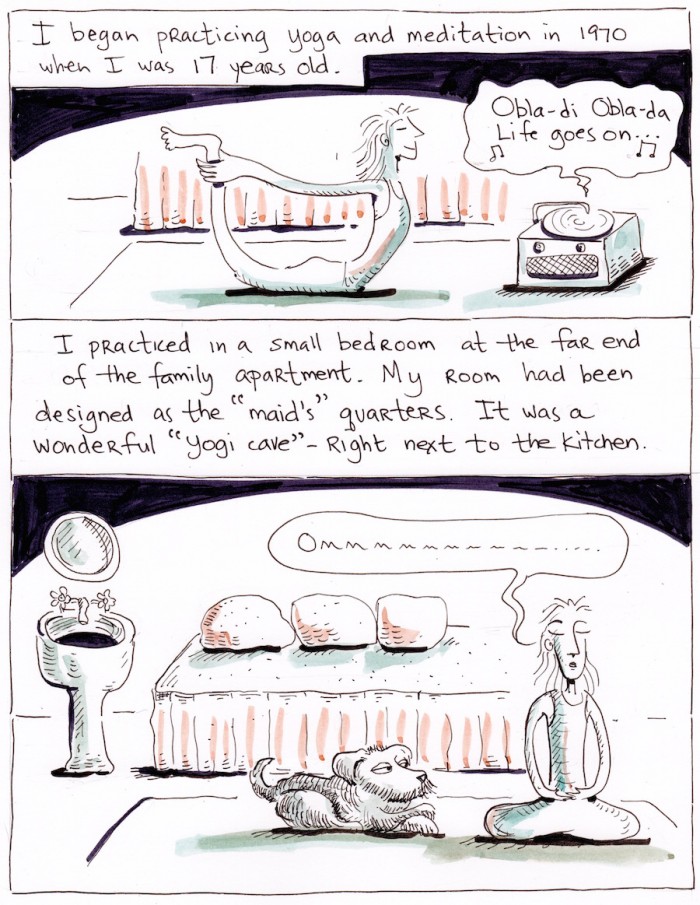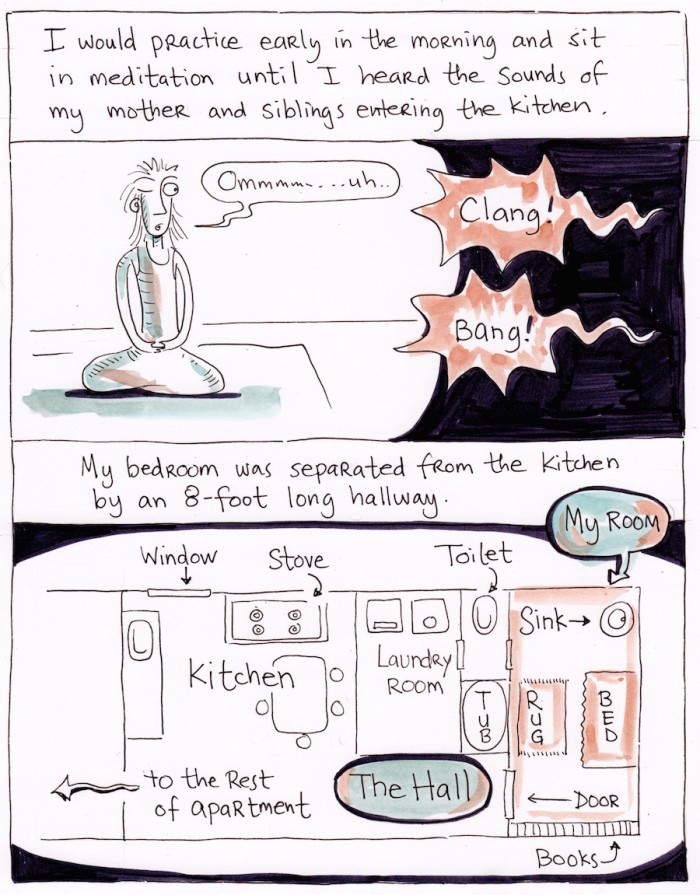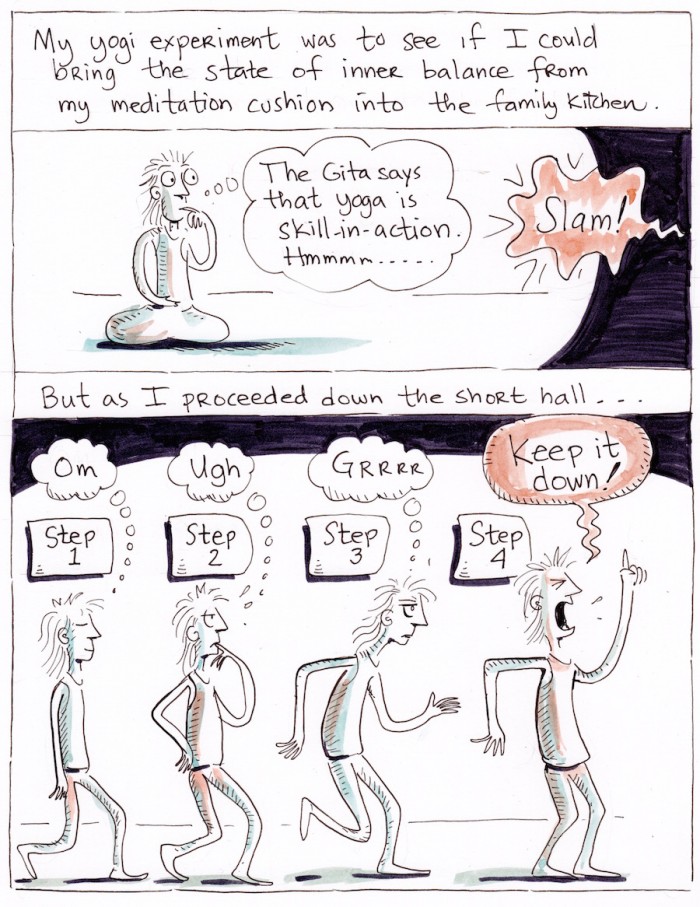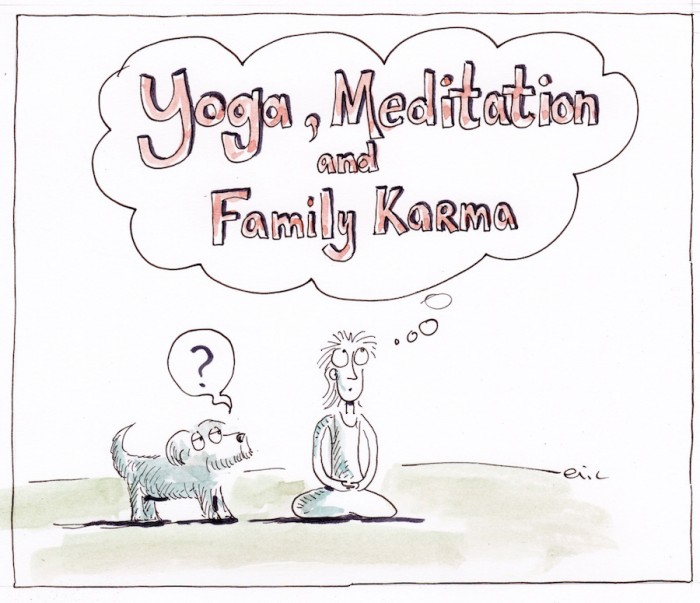Here’s a true story about my early experiences with yoga, meditation, and family karma:



Even though I wanted to maintain that yogic feeling, I couldn’t.
As I took each step, my inner peace fragmented.
My body would tighten, shoulders and belly tensing instinctively as I approached the family breakfast table.
Step-by-step, yogic equanimity was replaced with the persona of a moody, too-cool-for-school teenager.
I didn’t have the capacity to sustain compassion and detachment—while engaged in my family relationships.
I couldn’t carry the expansive, undefended consciousness that I found on the yoga mat and meditation cushion into the kitchen.
While I aspired to embody awakening, in the presence of my family, I descended into reactivity. It seemed like I had no choice but to be . . . angry, angst-laden, teenage-Eric.
But it wasn’t a matter of choice.
It was a matter of capacity. I hadn’t developed the spiritual, neurological and psychological capacity to sustain balanced consciousness and eat breakfast with my family.
It’s now over forty years later.
I can look back on my situation with compassion, detachment and a bit of humor. You can do the same for those triggering situations that you have “outgrown” or balanced.
But what about those situations—those people-–that still trigger your emotional reactivity?
You know that person who, with just the right look or tone of voice, can flick the switch on your anger, sadness, frustration—and shame.
For most of us, those people are family members or not-so-cleverly disguised substitutes. (Cue mildly hysterical voice: “But, you’re not my mother!”)
Do you really want to wait forty years to look back and laugh?
Are you sure you even have forty years? Seriously.
Why wait forty more years to look back on your current state of reactivity and laugh?
Spiritual practice cultivates compassion, detachment and humor—now.
The sequence of meditations, reflections, and exercises transform reactive patterns at their root . . .
But only if you practice.
Specifically—not generically. Generic meditations aren’t designed to heal family karma.
That’s why so many of the reactive patterns of our childhood are still active.
Spiritual practices build your capacity to embody compassion and detachment.
You build your capacity to witness, experience, and bless the patterns of reactivity that have been conditioned—through the mechanism of family karma—into your body/mind. You untangle yourself from reactivity.
And then whether you’re walking into the kitchen or the board room—you’ll bring clarity, compassion, and creativity with you.
Love & Shanti,
E
~
Relephant Read:
Family Karma: Wounds & Gifts from My Father.
~
Author: Eric Klein
Editor: Toby Israel
Photos: Author’s Own
~












Read 3 comments and reply